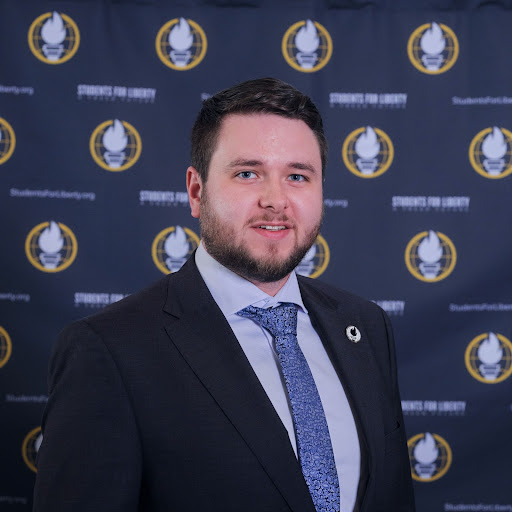Imagine having to pay and jump through hoops for the government to allow you to work. That’s essentially how occupational licensing works.
Occupational licensing is a regulatory mechanism that requires individuals to obtain a government-issued license before they can legally engage in certain professions or occupations.
While proponents argue that the aim of occupational licensing is to ensure public safety and consumer welfare, establishing a baseline of competence and professionalism within various fields,
However, it has evolved into a bureaucratic system that disproportionately burdens and oppresses the economically disadvantaged, hindering social mobility.
In the 1950s, only professionals in a limited number of fields, such as medicine or law, were required by the government to have a license. As such, only about 3 percent of Americans required such licenses.
Fast forward to the 21st century and it is estimated that around 30 percent of Americans require a license to exercise their profession.
Occupational licensing horror stories
The footage below shows a man having his money confiscated because he didn’t have a license to sell hot dogs.
his face is what hurts most, you can see in his face how scared he is and how sad he is that his day’s hard work got ripped away from him.. 🙁 pic.twitter.com/QyOMWjCcxh
— J Baby (@yagirljazzzyb) June 11, 2020
Occupational licensing, especially in fields where the potential for harm to consumers is minuscule, is an egregious example of government overreach. It is a classic example of an anticompetitive framework that protects the interests of the haves at the expense of the have-nots.
Not convinced? Maybe you think the risk of food poisoning warrants the government stepping in to ensure only approved vendors are able to sell hot dogs? But take, for instance, braiding hair?
It would be difficult to imagine how someone could cause any serious harm by being bad at braiding hair! In the worst case scenario, they do a terrible job and the customer never returns, leaves a bad review, and tells all their friends about it.
Yet, many states require a cosmetology license to braid hair, which can involve up to $20,000 in costs and up to 2,100 hours of training in some states — more than emergency medical technicians!
The burdens of occupational licensing fall disproportionately on the poor
One of the primary ways occupational licensing oppresses the poor is by creating artificial barriers to entry. Since licensing requirements often involve lengthy and expensive educational prerequisites, it is extremely challenging for individuals with limited financial resources to pursue certain professions.
Fees for exams, coursework, and renewal can add up quickly, placing an additional strain on individuals already struggling to make ends meet. For many in lower-income communities, these financial barriers become insurmountable obstacles, preventing them from pursuing their desired careers or starting their own businesses.
Occupational licensing also has negative effects for consumers
Despite its purported mission of consumer protection, occupational licensing carries a number of negative implications for consumers.
First and foremost, it limits the choices available to consumers by restricting competition.
But with fewer professionals in the market, prices tend to rise, further limiting access to essential services for those with limited means. The absence of competition also stifles innovation, as the fear of regulatory hurdles discourages new entrants with fresh ideas and approaches.
Fortunately, there is a growing recognition of the need for occupational licensing reform. Policymakers, activists, and scholars are increasingly advocating for a new approach that alleviates the negative socioeconomic impacts of licensing requirements.
Some proposed solutions include streamlining licensing processes, reducing a number of unnecessary requirements entirely, and implementing alternative pathways for certification that don’t cost so much that they exclude those with limited financial means.
It is crucial to recognize that dismantling oppressive occupational licensing practices is not an attack on public safety but rather a call for a more inclusive and competitive system, where consumers can vote with their business and more people can take initiative to better their lives.
Ultimately, the only people who stand to gain under the current system are the incumbents, as they are shielded from fair competition.
Occupational licensing — why we have to beg the government to let us do our jobs — will be a prominent theme at Students For Liberty’s upcoming LibertyCon International.
At this annual flagship event, held in Washington, D.C., on February 2-4, 2024, 2020 Libertarian Party nominee for president, Jo Jorgensen, Assistant Editor for Reason Magazine, Emma Camp, and CEO of Dirty Boots Capital, Tony Lopes will participate in a panel discussion on occupational licensing, moderated by journalist and activist, Shoshana Weissman.
Moreover, LibertyCon International offers an opportunity to engage with top experts, scholars, and entrepreneurs from a variety of fields while providing a platform for attendees to connect with others who are dedicated to advancing pro-liberty ideas and creating a freer future.
Click the button below to sign up for updates and secure your spot at this exciting event. We can’t wait to see you there!
This piece solely expresses the opinion of the author and not necessarily the organization as a whole. Students For Liberty is committed to facilitating a broad dialogue for liberty, representing a variety of opinions.



